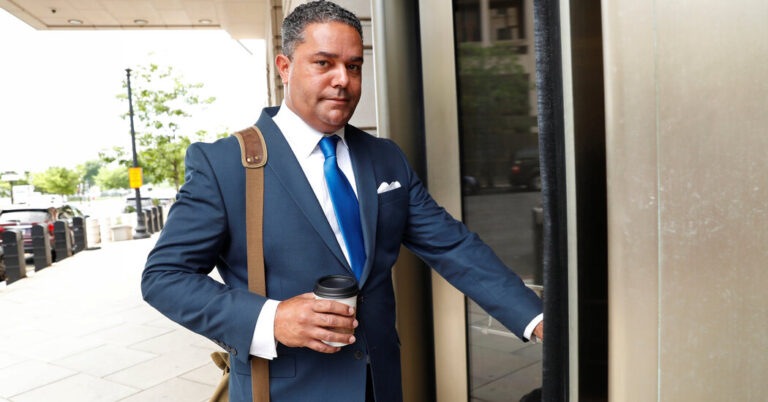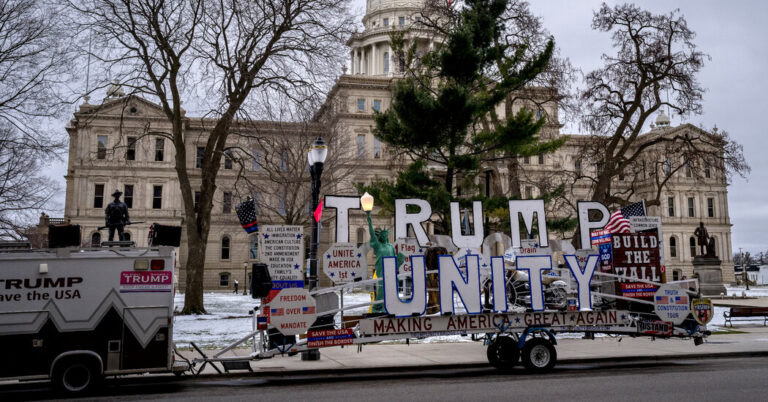Columbia University Protests Over Gaza War Continue and Spread to Other Campuses
Scores of student protesters at Columbia University gathered outside on Friday, just across from where their tent encampment had been demolished by university officials the day before. Some students had been there through the night. Others, including a few who had been arrested Thursday, had only recently arrived.
A day after Columbia’s president, Nemat Shafik, called in the police to arrest some 100 students and take down their encampment, the activists showed little sign of losing steam. There were heaps of blankets and deliveries of water bottles and food.
Dr. Shafik’s decision drew criticism on Friday from the campus chapter of the American Association of University Professors, a professional faculty organization.
“We have lost confidence in our president and our administration, and we pledge to fight to reclaim our university,” the group said in a statement Friday.
In addition, a pro-Palestinian coalition of faculty and staff at Columbia, Barnard and Teachers colleges called upon faculty to boycott graduation and academic events, until the university lifts student suspensions and withdraws financial support from Israel, among other demands.
But not all faculty members agreed with the criticism. Vincent A. Blasi, a Columbia law professor who has spent decades studying civil liberties issues, said the university had articulated a “reasonable” policy to govern protests and had every right to punish students who violate it.
“It’s clear to me that they haven’t transgressed here,” he said. “You can debate who you ought to be sympathetic with, but in my own mind, I am confident that the students have no First Amendment claim to stay in that space.”
The new protest camp at Columbia officially breaks university rules. And some of the chants — “We don’t want no Zionists here” and “Israel is a racist state” — are the same ones that President Shafik suggested were creating “a harassing and intimidating environment for many of our students.”
But there seemed to be a lull in enforcement, at least for the moment, as university administrators consider whether they should suspend and arrest even more students for a movement that clearly has considerable campus support. One student organizer said on Friday that protesters had been told by campus security that as long as they did not pitch tents, they could remain there as an informal gathering.
“Our community has had protest activity on campus since October, and we expect that activity to continue,” said Samantha Slater, a university spokeswoman. “We have rules regarding the time, place and manner that apply to protest activity, and we will continue to enforce those.”
Protesters also gathered outside the university’s gates on Friday, with someone yelling, “We are Hamas.” The nearby headquarters of Hillel, a campus Jewish organization, was nearly empty, unusual for a Friday afternoon.
Daniel Garren, 21, was one of the few students there. Describing himself as half-Ashkenazi Jewish and half-Yemeni, he criticized the members of Congress who grilled Dr. Shafik on Wednesday. “It was pretty frustrating to watch,” he said of the congressional hearing. “A lot of non-Jewish uninformed congresspeople ask our non-Jewish president about matters that they don’t seem to have a strong grasp of.”
Two students at the protest on Friday said they had been among those arrested on Thursday. Officially, the university said that all students who had been at the encampment had also been suspended, in which case they would be barred from campus. But administrators had yet to notify them individually by email, students said.
According to Columbia, suspended students may not go to class or hand in course work, jeopardizing the chance to finish their semesters. Campus IDs are deactivated, making classrooms and dining halls inaccessible. But suspended students would be able to return to their dorms, a spokeswoman said.
Maryam Alwan, an arrested student, described in an interview how protest organizers had carefully arranged safety plans before the police moved in.
After hearing that the police were entering campus, the protesters sat in two concentric circles. “Some people were crying, some were completely calm,” Ms. Alwan said. Their hands were zip-tied, and then they were then put on buses. They spent about eight hours at police headquarters, before being released with trespassing summonses.
The continuing demonstration has upset other students, including those who found the anti-Zionist stance of the protest threatening and antisemitic. Noa Fay, 23, a first-year student at the School of International and Public Affairs, described feeling annoyed and “emotionally detached” by the ongoing protests.
“I’m Jewish with family in Israel,” she said. “The longer that this has gone on it makes clear to me the lunacy of it all.”
Karla Marie Sanford, Olivia Bensimon and Eryn Davis contributed reporting.
Check out our Latest News and Follow us at Facebook
Original Source







